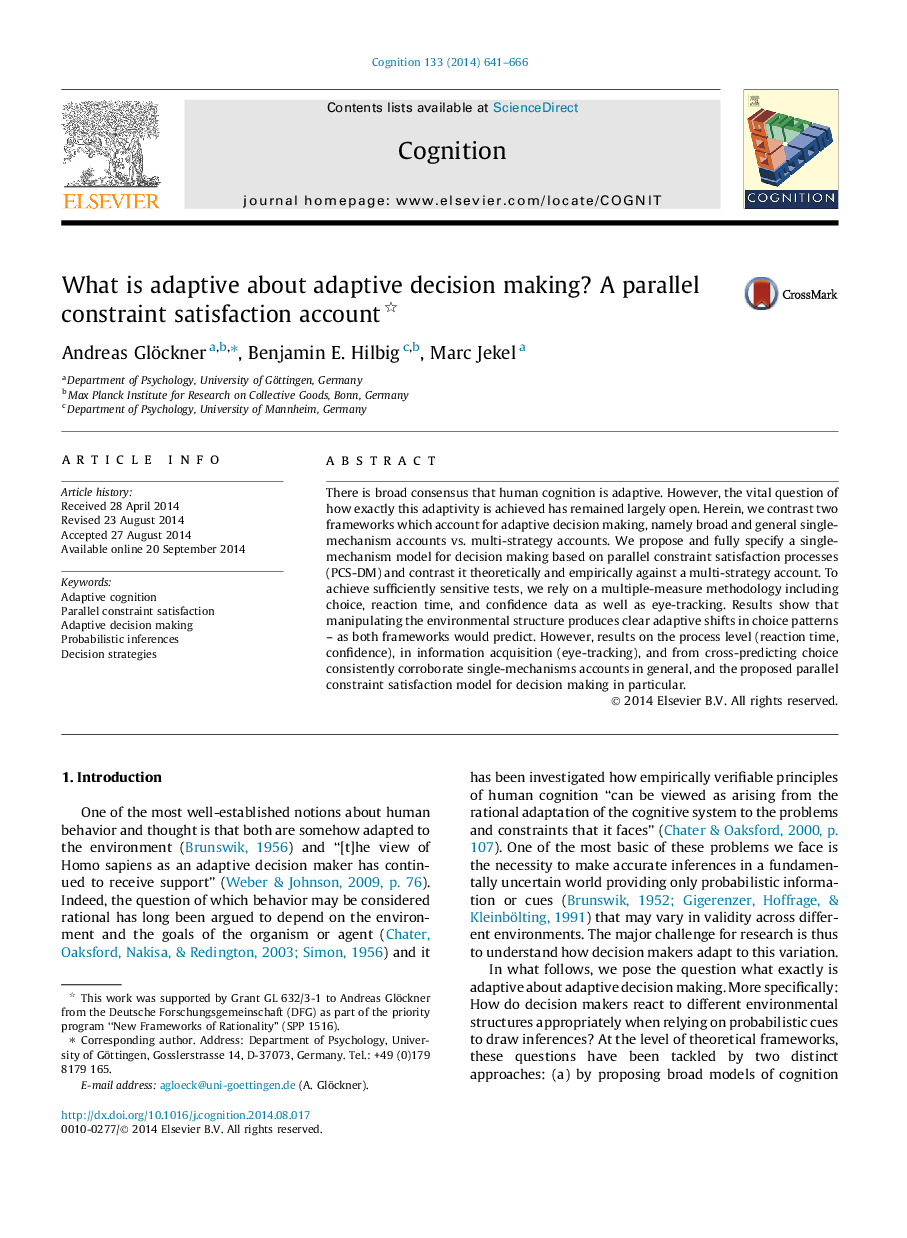| کد مقاله | کد نشریه | سال انتشار | مقاله انگلیسی | نسخه تمام متن |
|---|---|---|---|---|
| 926363 | 921834 | 2014 | 26 صفحه PDF | دانلود رایگان |
• Individuals efficiently adapt choice behavior to the structure of the environment.
• These adaptations are not due to switching strategies.
• They can be better accounted for by single-mechanism models.
• A parallel constraint satisfaction model for decision making is suggested.
• PCS-DM captures individual differences in adaptation with a sensitivity parameter.
There is broad consensus that human cognition is adaptive. However, the vital question of how exactly this adaptivity is achieved has remained largely open. Herein, we contrast two frameworks which account for adaptive decision making, namely broad and general single-mechanism accounts vs. multi-strategy accounts. We propose and fully specify a single-mechanism model for decision making based on parallel constraint satisfaction processes (PCS-DM) and contrast it theoretically and empirically against a multi-strategy account. To achieve sufficiently sensitive tests, we rely on a multiple-measure methodology including choice, reaction time, and confidence data as well as eye-tracking. Results show that manipulating the environmental structure produces clear adaptive shifts in choice patterns – as both frameworks would predict. However, results on the process level (reaction time, confidence), in information acquisition (eye-tracking), and from cross-predicting choice consistently corroborate single-mechanisms accounts in general, and the proposed parallel constraint satisfaction model for decision making in particular.
Journal: Cognition - Volume 133, Issue 3, December 2014, Pages 641–666
